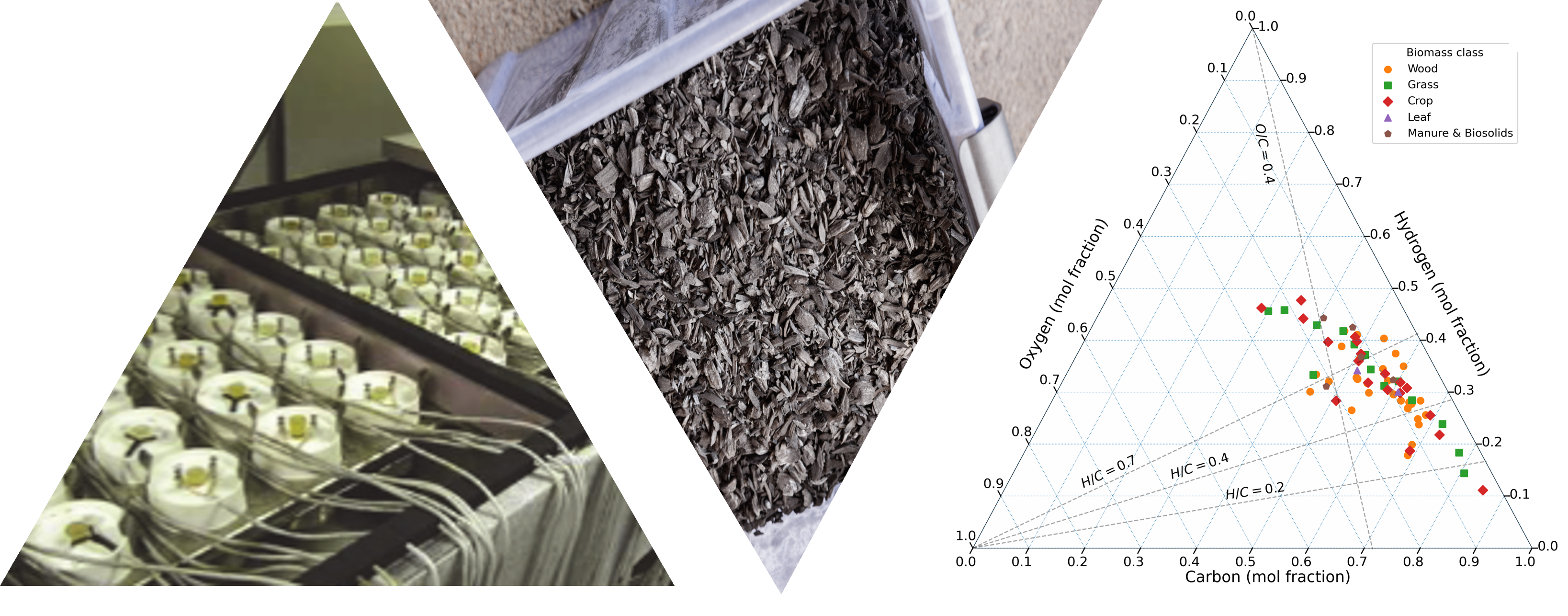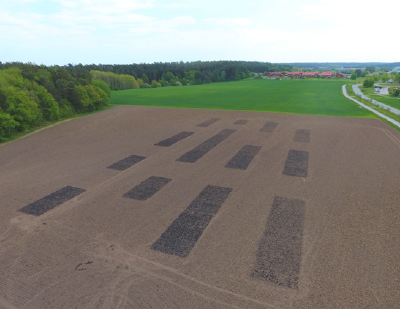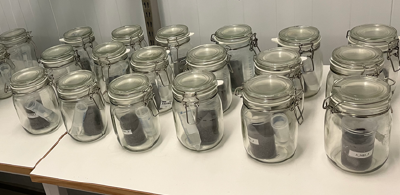Background
Biochar produced from biomass has large potential to provide negative greenhouse gas emissions as a stable carbon sink in soil alongside other climate change mitigation benefits. A hurdle for biochar deployment at scale has been the knowledge about the stability of biochar over longer time periods, also referred to as persistence or durability.
This project aimed at consolidating the knowledge around biochar carbon storage in soils.
Research objectives (as stated in 2022)
- Knowledge on biochar stability in Swedish agricultural soils
- Field trials established for long-term evaluation of biochar stability
- Open database for international research data on biochar stability
- New models for calculation of biochar stability based on biochar properties and environmental conditions
- Practical guidelines on how to use the stability models developed
Research outputs (as of 2024-12-06)
-
Scientific article. December 2024. Can inert pool models improve predictions of biochar long-term persistence in soils? Geoderma, 452, 117093. https://doi.org/10.1016/j.geoderma.2024.117093
-
Scientific article. January 2024. Modelling biochar long-term carbon storage in soil with harmonized analysis of decomposition data Geoderma, 441, 116761 https://doi.org/10.1016/j.geoderma.2023.116761
-
Dataset and code. December 2023. GitHub Repository for the biochar decay dataset and python code for reproducing analyses. https://github.com/SLU-biochar/biocharStability
-
Background report. December 2023. Guidelines for estimation of biochar durability. See: biochar.systems/stability/guidelines
-
Public statement. June 2023. At the Biochar Summit in Helsinborg, we published a short non-technical statement synthesizing current knowledge on durability, resulting from 2 months of discussions between researchers in the field. Access it here: biochar.systems/durability-statement
-
Conferences & Seminars. Project team has contributed to a series a scientific conferences, seminars and workshops on the topic of biochar persistence, such as: EU CRCF Workshops & Meetings 2024, Biochar Summit 2023, EGU 2023, EGU 2022, Negative Emission Conference 2022.
Activities on-going and planned
Several activities on-going and new ones are planned in 2025:
- Laboratory incubations with non-labelled Swedish biochars started in February 2022 have been concluded. Analysis of data is on-going.
- Laboratory incubations with novel labelled biochar started in September 2023 is on-going. Characterisation and other analyses are on-going.
- Update of recommendations and review of new research findings is planned for 2025.

Timeline and work packages
The project has 5 work packages (WP):
- WP1: Stakeholders & guidelines
- WP2: Biochar characterisation
- WP3: Laboratory incubations
- WP4: Field trials
- WP5: Data analysis
The project started in january 2022, and will continue until year 2025:
- Year 2022: survey & roundtables with stakeholders (WP1) / biochar collection & characterisation (WP2) / experiment design (WP3-4) / litterature data collection, modelling toochain, and first re-analysis (WP5)
- Year 2023: initial guidelines (WP1-5) / start of incubation (WP3) / start of field trials (WP4) / uncertainty modelling (WP5) / publication of dataset and modelling article (WP5)
- Year 2024: continued laboratory and field work (WP3-4) / modelling of power and inert pool models (WP5)
- Year 2025: continued laboratory and field work (WP3-4) / update of recommendations (WP1-5) / publication of other articles (WP2-4)
Project Presentation (dated 2022-06-16)
External links
Contact
For general inquiries: kolinlagringattraknamed@2050.se

The team
- Cecilia Sundberg (SLU, energy and technology) Project leader. cecilia.sundberg@slu.se
- Elias Azzi (SLU, PhD in biochar systems analysis) Compilation, modelling & analysis of biochar decay data. elias.azzi@slu.se
- Erik Karltun (SLU, lecturer in soil science at the Soil & Environment Department) Soil and plant interactions with biochar. erik.karltun@slu.se
- Harald Cederlund (SLU, molecular sciences) Stability characterisation at the laboratory scale. harald.cederlund@slu.se
- Haichao Li (SLU, Post-doctoral researcher, Soil & Environment Department) Laboratory incubations and field trials. haichao.li@slu.se
- Helena Söderqvist (2050 Consulting) Knowledge bridge between market & user. helena.soderqvist@2050.se
